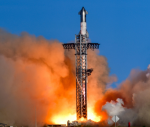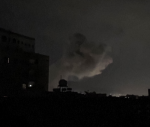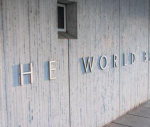You are here
Iran set to avoid new censure over nuclear work — diplomats
By AFP - Mar 06,2023 - Last updated at Mar 06,2023
VIENNA — Iran will evade fresh censure by the UN nuclear watchdog after making "concrete" commitments at the weekend to be transparent following the discovery of particles enriched to near weapons-grade, diplomats told AFP on Monday.
The development comes after International Atomic Energy Agency (IAEA) head Rafael Grossi received assurances from Iran that surveillance cameras at several nuclear sites would be reconnected and the pace of inspections increased.
On Saturday, Grossi returned from a two-day visit to Tehran, which sought greater cooperation over its atomic activities, following the discovery of uranium particles enriched to near weapons-grade level.
Three Western diplomats told AFP on the first day of the Board of Governors meeting of the Vienna-based IAEA that no new resolution criticising Iran over its nuclear programme was planned.
"But it remains to be seen whether anything agreed in Tehran results in real progress," a Western diplomat cautioned.
In November, Iran was censured over its lack of cooperation with the agency.
On Monday, Grossi dismissed the perception that he had merely obtained empty promises from Iran over the weekend.
These are “not promises, we do have certain agreements which are concrete”, he told reporters in Vienna.
“I have been as frustrated as many other people, perhaps the most frustrated, when there is lack of results,” he added.
“We seem to be moving into more firm ground,” he said, adding that the agency would “of course walk with caution”.
Grossi hailed “a marked improvement” in his discussions with the Iranian government last week.
He said the measures he agreed with Iran should be in place “very soon” following a technical meeting due to travel to Tehran.
In his series of meetings with Iranian officials, Grossi met President Ebrahim Raisi.
Tehran also indicated it had agreed to more inspections at the Fordo underground plant, where uranium particles enriched to near weapons-grade were found.
A confidential IAEA report seen by AFP detailed that uranium particles enriched up to 83.7 per cent — just under the 90 per cent needed to produce an atomic bomb — had been detected.
Iran denies wanting to acquire atomic weapons, and says it had made no attempt to enrich uranium beyond 60 per cent purity.
In January, the IAEA’s Grossi said Iran had “amassed enough nuclear material for several nuclear weapons”.
On-off talks between Tehran and world powers to revive a 2015 landmark deal that sought to curb Iran’s nuclear programme in exchange for sanctions relief had stalled since last year.
The deal Iran reached with Britain, China, France, Germany, Russia and the United States collapsed after Washington’s unilateral withdrawal in 2018 under then president Donald Trump.
Related Articles
VIENNA — Iran on Monday denied reports that it has enriched uranium up to 84 per cent, just below the 90 per cent needed to produce an atomi
VIENNA — The head of the UN nuclear agency said on Monday that Iran is complying with obligations limiting uranium enrichment, but two diplo
TEHRAN — Iran said on Tuesday it had begun producing uranium enriched to 60 per cent at its Fordo plant, an underground facility that reopen















